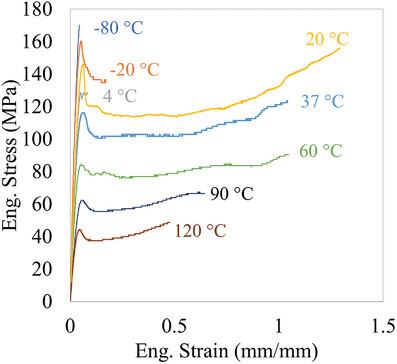当前位置:
X-MOL 学术
›
Adv. Funct. Mater.
›
论文详情
Our official English website, www.x-mol.net, welcomes your
feedback! (Note: you will need to create a separate account there.)
Temperature-Induced Effects on Wet-Spun Artificial Spider Silk Fibers
Advanced Functional Materials ( IF 18.5 ) Pub Date : 2024-11-17 , DOI: 10.1002/adfm.202418435 Gabriele Greco, Benjamin Schmuck, Vincenzo Fazio, Giuseppe Puglisi, Giuseppe Florio, Nicola Maria Pugno, Luca Fambri, Anna Rising
Advanced Functional Materials ( IF 18.5 ) Pub Date : 2024-11-17 , DOI: 10.1002/adfm.202418435 Gabriele Greco, Benjamin Schmuck, Vincenzo Fazio, Giuseppe Puglisi, Giuseppe Florio, Nicola Maria Pugno, Luca Fambri, Anna Rising

|
Silk-based materials are sought after across various industries due to their remarkable properties, including high strength and flexibility. However, their practical application depends largely on how well these properties are maintained under different environmental conditions. Despite significant advancements in the large-scale production of artificial silk fibers, the effects of temperature on their mechanical behavior are understudied. In this study, the mechanical properties of artificial spider silk fibers between −80 and +120 °C are examined and compared to both synthetic and natural silk fibers. The findings reveal that artificial silk fibers maintain their strength up to +120 °C, though the strain at break slightly decreases, remaining above 60%. At −80 °C, the fibers exhibit increased strength, but the strain at break is reduced. While these artificial fibers closely mimic the behavior of natural silk, they show a noticeable reduction in extensibility at low temperatures. Complementing experimental data, differential scanning calorimetry, and thermogravimetric analysis are also conducted, proposing a simple physical model to explain the observed temperature-induced softening. Encouragingly, the degradation temperature of artificial silk is comparable to that of native silkworm and spider silk. This study underscores the importance of enhancing the mechanical robustness of artificial silk to expand its applications.
中文翻译:

温度对湿纺人造蜘蛛丝纤维的影响
蚕丝基材料因其卓越的特性(包括高强度和柔韧性)而受到各行各业的追捧。然而,它们的实际应用在很大程度上取决于这些特性在不同环境条件下的保持程度。尽管人造丝纤维的大规模生产取得了重大进展,但温度对其机械行为的影响尚未得到充分研究。在本研究中,检查了人造蜘蛛丝纤维在 −80 °C 和 +120 °C 之间的机械性能,并与合成纤维和天然丝纤维进行了比较。研究结果表明,人造丝纤维在 +120 °C 下仍能保持其强度,但断裂应变略有降低,保持在 60% 以上。在 −80 °C 时,纤维的强度增加,但断裂应变降低。虽然这些人造纤维与天然丝绸的行为非常相似,但它们在低温下的延展性明显降低。作为实验数据的补充,还进行了差示扫描量热法和热重分析,提出了一个简单的物理模型来解释观察到的温度诱导软化。令人鼓舞的是,人造丝的降解温度与原生蚕和蜘蛛丝相当。这项研究强调了增强人造丝的机械强度以扩大其应用的重要性。
更新日期:2024-11-18
中文翻译:

温度对湿纺人造蜘蛛丝纤维的影响
蚕丝基材料因其卓越的特性(包括高强度和柔韧性)而受到各行各业的追捧。然而,它们的实际应用在很大程度上取决于这些特性在不同环境条件下的保持程度。尽管人造丝纤维的大规模生产取得了重大进展,但温度对其机械行为的影响尚未得到充分研究。在本研究中,检查了人造蜘蛛丝纤维在 −80 °C 和 +120 °C 之间的机械性能,并与合成纤维和天然丝纤维进行了比较。研究结果表明,人造丝纤维在 +120 °C 下仍能保持其强度,但断裂应变略有降低,保持在 60% 以上。在 −80 °C 时,纤维的强度增加,但断裂应变降低。虽然这些人造纤维与天然丝绸的行为非常相似,但它们在低温下的延展性明显降低。作为实验数据的补充,还进行了差示扫描量热法和热重分析,提出了一个简单的物理模型来解释观察到的温度诱导软化。令人鼓舞的是,人造丝的降解温度与原生蚕和蜘蛛丝相当。这项研究强调了增强人造丝的机械强度以扩大其应用的重要性。


















































 京公网安备 11010802027423号
京公网安备 11010802027423号